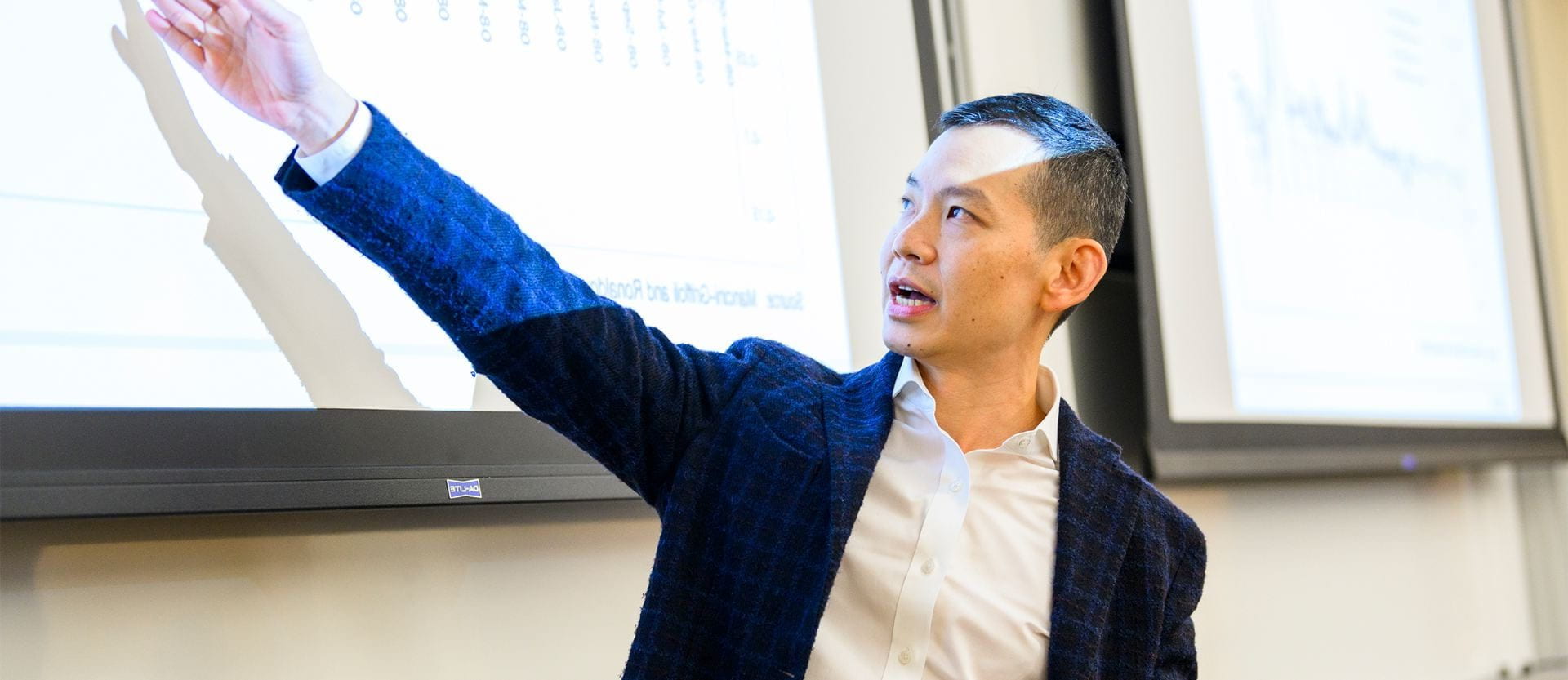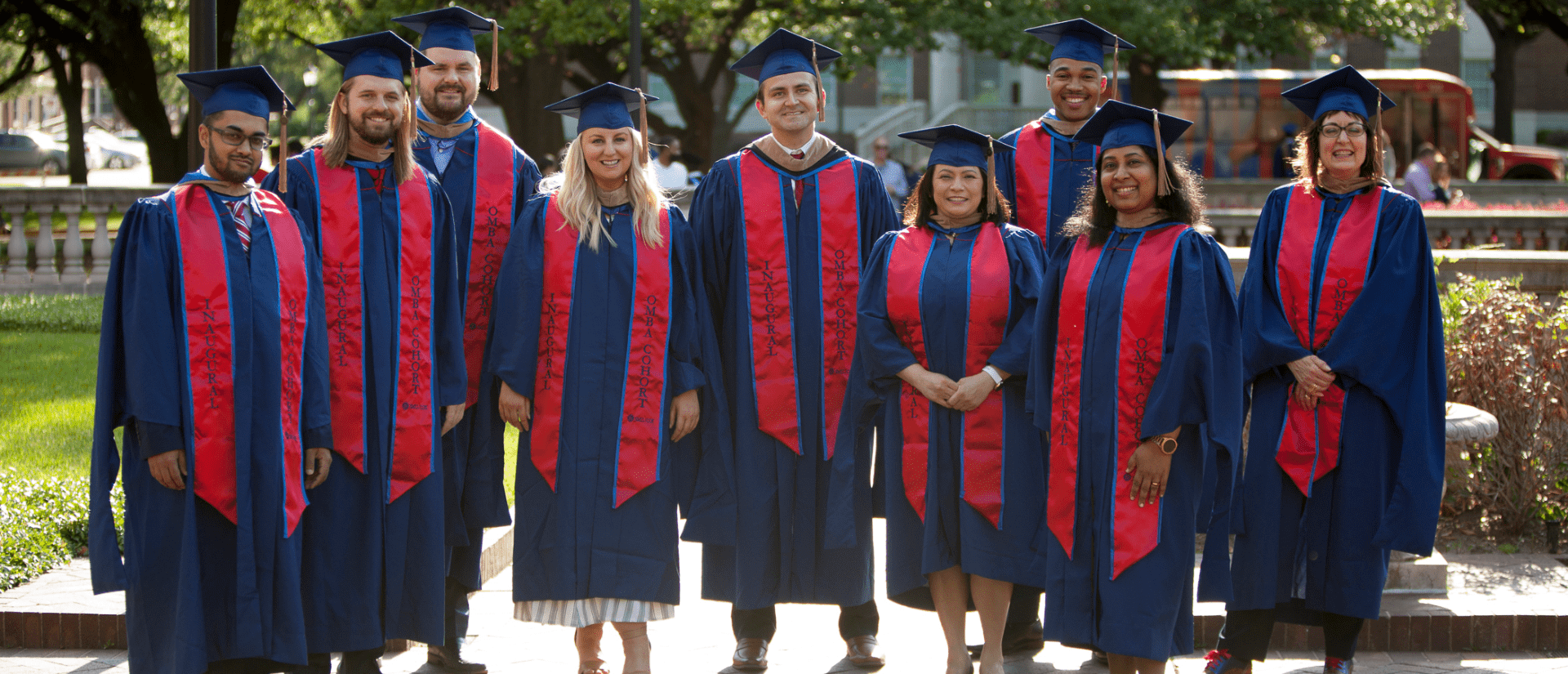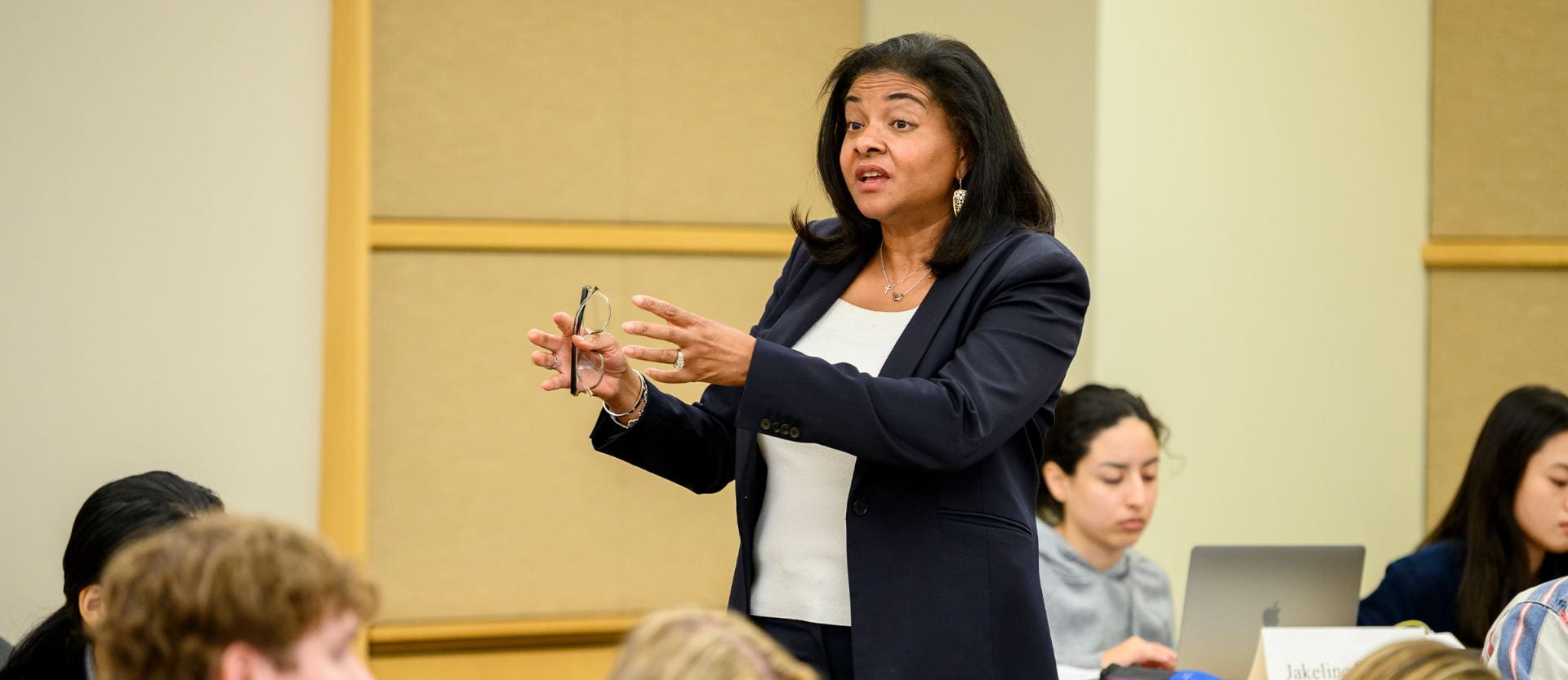Associate professor Chotibhak (Pab) Jotikasthira has spent his academic career focused on furthering his research and perfecting his teaching style — a combined effort to cultivate an understanding of and excitement for the world of bonds.
Jotikasthira has a strong background in mathematics, having earned an undergraduate degree in industrial engineering. But a consistent, empirical relevance and an ever-changing atmosphere drew him to the field of finance. Before pursuing academia, Jotikasthira worked as a portfolio and risk manager for the Bank of Thailand, where he managed $38 billion in foreign-exchange reserves invested in global fixed-income markets and developed quantitative models for formulating investment strategies.
Learn more about Professor Jotikasthira, why he believes bonds are a grossly underrepresented area of academic study and why students love him — despite his famously hard class.
This interview has been edited for length and clarity.

Q. What brought you to SMU Cox School of Business?
A. I was looking for a place where I could do research and a school with comparable representation in terms of the research community and the overall image to students. There are not many Top 50 business schools in ideal locations with such a strong reputation in both teaching and research. On top of that, I know some of the senior faculty members, and I really trust them in terms of how they run the department and create an environment where we all succeed both in research and in teaching. It’s an ideal school. I’m really happy that I’m here.
Q. Aside from earning tenure in 2018, what has been your most meaningful accomplishment during your time at SMU Cox?
A. A few years ago, an outstanding student was interviewed for a CoxToday article and, when asked about his favorite professor, he mentioned me. He said he loved my teaching style and learned a lot in my course. Maybe this is nothing for people who get a lot of these compliments all the time. For me, I put a lot of work into teaching, so to get this recognition, it was fantastic. A couple of years later, I attended a farewell Zoom party for students graduating from the Master of Finance program. Students were talking in the little chat box, and I saw my name: “Pab is the GOAT.” [Laughs.] The fact that they recognized me as one of the faculty members they like and appreciate — for me, these little things mark something important in terms of the rewards. It’s a small, emotional thing, but it’s important for me and encourages me to go on and put more effort into my teaching.
Q. It’s clear that you’ve made an impact on your students. How would you describe your teaching style?
A. My teaching style is very interactive. I like to keep students engaged; I cold-call a lot. I’m serious about what I do, meaning that I have a lot of assignments every single week we have class. Students have to deliver something before they come to class. And at the end of the term, there is a very engaging exam. It’s one where you have to do some real calculations and show insight about what you learned.
Q. What’s something unique about your research areas — institutional investors, financial intermediation, international finance and fixed income — that you’d want your students and colleagues to be aware of?
“The misconception is that there’s nothing exciting about bonds. That cannot be further from the truth.”
A. People find it easier to understand equities and stocks. People know the stock market. Not a lot of people know about bonds, and they think bonds are boring. It’s a fixed income. You find the present value of all those fixed cash flows and that’s it, right? So, the misconception is that there’s nothing exciting about bonds. I think that cannot be further from the truth. Bonds are actually quite exciting. If you think about the Great Recession in 2008, what triggered that is the mortgage-backed securities market. If you think about the COVID-19 crisis, what were the tools that the feds used in order to stimulate the economy? They bought bonds, right? Bonds are so critical. Bonds are highly institutional; they are traded among insurance companies, mutual funds and so on.
Q. What do you like to do outside of the classroom?
A. I run a lot on the Katy Trail in Dallas. If I get a chance, I like playing and watching tennis. Recently, we went to see the U.S. Open matches.
Professor Chotibhak Jotikasthira is an associate professor of finance and Corrigan Research Professor at the SMU Cox School of Business. He serves as associate editor of the “Review of Financial Studies.”













